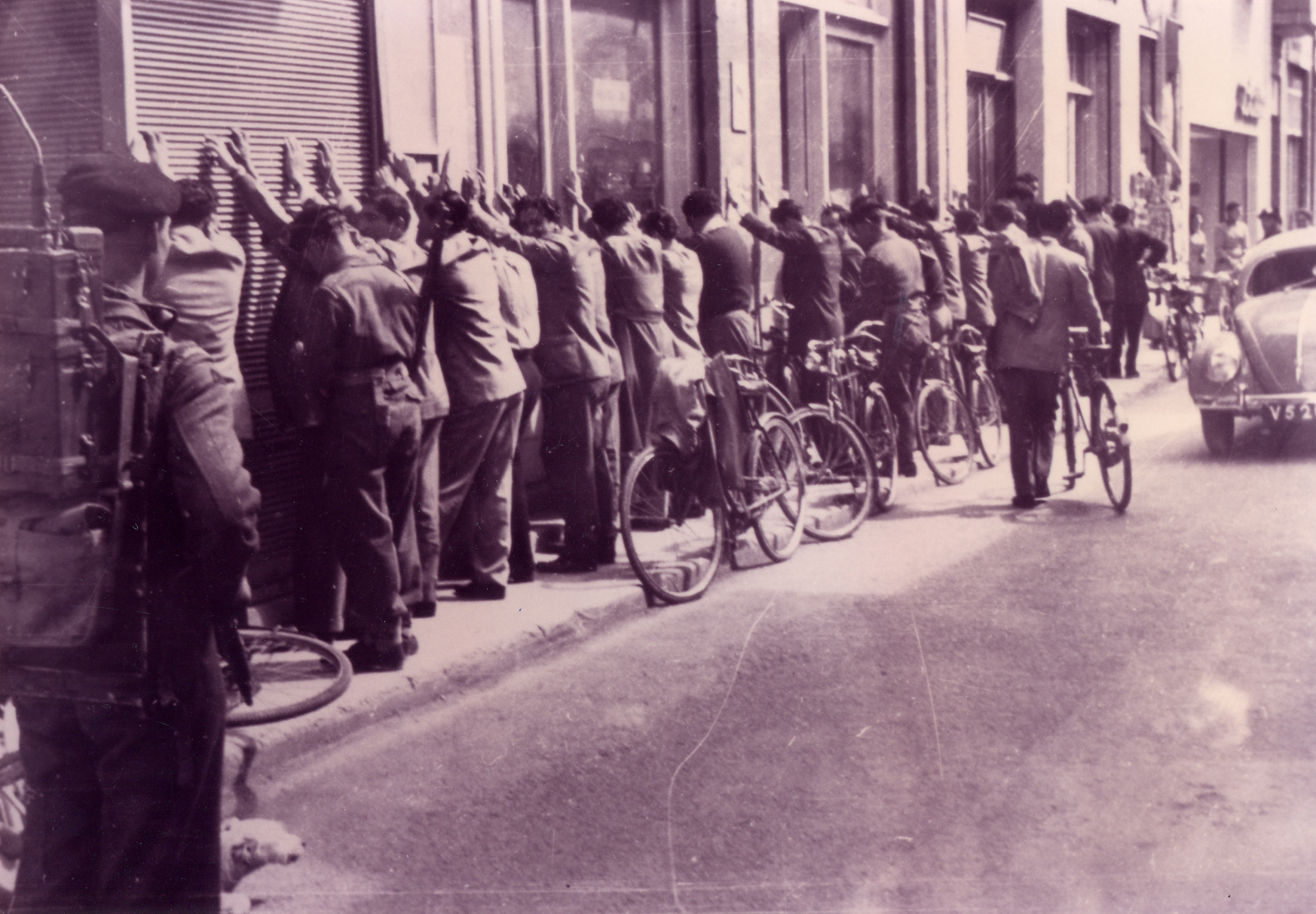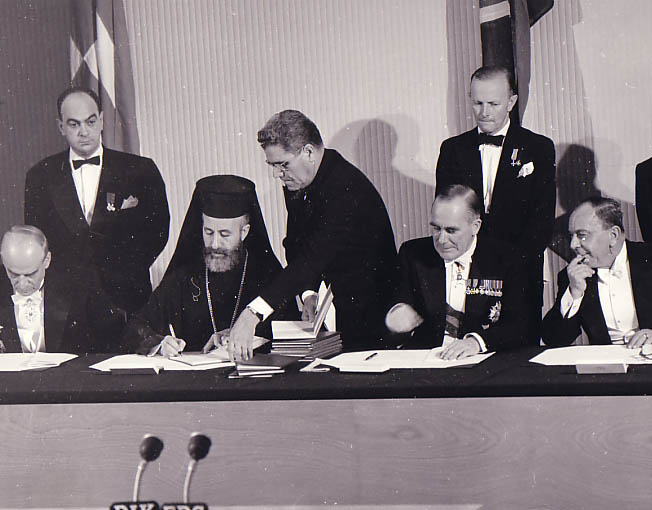By Michael Theodoulou
Cyprus gained independence from Britain on August 16, 1960 but marks the anniversary every year on October 1. Michael Theodoulou explains why in this article he wrote on the 50th anniversary of independence in 2010.
When Cyprus shook off 82 years of British colonial rule a half a century ago, most Cypriots were wresting a living from the parched soil under a scorching sun. Per capita yearly income was €280.
Today Cyprus is a prosperous member of the European Union. Most Cypriots work in plush, air-conditioned offices in the financial sector or in tourism, which is propelled by British holidaymakers.
Per capita income is more than €21,700 – higher than Greece or Portugal – and Cyprus has the world’s fifth highest rate of car ownership. Cypriots are understandably proud of these achievements, especially in view of the island’s de facto division since 1974. But it is because of that division few see cause to celebrate when Cyprus officially marks 50 years of independence today. Many trace the roots of the Cyprus problem to the manner in which Britain ruled – and left – the island.
“It wasn’t a clear-cut independence,” said Demetris Aristidou, a 65-year-old teacher, echoing a common view as he relaxed at a cafe in Nicosia, Europe’s last divided capital. The independence treaties for the newly-minted state were drafted by Greece and Turkey, with minimal input from Cyprus. And Cyprus’ independence is unique – not to say paradoxical – in that it relies on outside powers – the UK, Greece and Turkey – to guarantee it. Britain, meanwhile, retained 256 square kilometres of the strategically-located island as sovereign military bases.

Independence itself was a compromise. Between 1955 and 1959, a right-wing Greek Cypriot guerilla movement, EOKA, fought a violent campaign against British rule. The goal was enosis – union with Greece – not independence. The smaller Turkish Cypriot community, in response, pursued partition and union with Turkey. “The independent Republic of Cyprus was a historical outcome nobody wanted,” said Hubert Faustmann, a political analyst at the University of Nicosia.
Greek Cypriots did not celebrate independence as a national holiday until 1979. Reeling from the island’s division, they had long abandoned hope for enosis and were instead committed to re-uniting the island as a fully independent state. Few younger Cypriots are aware that Cyprus actually became independent on August 16, 1960. Commemorations were moved to October 1 in the early 1960s to avoid the hot summer holiday season.
Such expediency says much about the Greek Cypriots’ attitude to today’s anniversary, Mr Faustmann said. “The French would never move their national day from July 14 or the Americans from July 4 because it was too hot.” Even today, Cyprus does not have its own national anthem: the Greek Cypriots use Greece’s; the Turkish Cypriots use Turkey’s.
Divide and rule
Many Cypriots accuse Britain of a “divide and rule” policy in the 1950s, arguing this sowed the seeds of the Cyprus problem.
In contrast to most British colonies, Cypriots were denied anything more than a nominal role in governing their country. “So they had no experience in self-governance or bi-communal consensus politics when independence came. It’s little wonder there were soon problems,” said Tabitha Morgan, author of the newly-published Sweet and Bitter Island: A History of the British in Cyprus. Three years after Britain bailed out, the Greek and Turkish Cypriot communities clashed violently over a complicated constitution that neither side had much say in devising.
Turkish Cypriots will ignore today’s independence anniversary. They instead celebrate the day in November 1983 when they declared their own breakaway state – the ‘Turkish Republic of Northern Cyprus’ – which is recognised only by Turkey.
Attitudes to the UK remain ambivalent. Symis Shukuroglu, a café owner, said: “They [Eoka] kicked out the Brits, but all the sons of these ‘heroes’ went to study in Britain.” Cypriots are smitten by British popular culture and support football clubs such as Arsenal and Tottenham Hotspur, whose grounds are in parts of north London with large Cypriot communities. But when it comes to the English national football team, Greek Cypriots – like the Scots – invariably cheer on the opposing side.
Mr Aristidou, the teacher, recalled being an elementary school pupil in 1953 when Queen Elizabeth II was crowned. “We were given a coronation mug. When we left the school gates there was an adult who encouraged us to smash them in the road.” But Mr Aristidou is no Anglophobe: he lived in England for 11 years and is married to a Briton. However, his feelings towards the former colonial master are mixed.
Referring to the mug, he said wryly: “It would be a collector’s item now – though I wouldn’t particularly want it in my house.”

